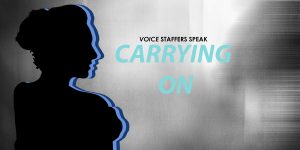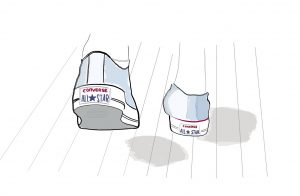Nothing is enough if it is less than what I know I am capable of. Or so I have felt in my battle with achievement anxiety, which has gone on for years. High school was a sequence of pushing myself to attain perfect scores, juggling various extracurriculars, and winning awards—an impulse that has persisted in college.
Before college, I never saw a problem with using achievement to measure my self-worth—often I was rewarded for it. Until recently, I had never drastically fallen short of my own standards. Even throughout the challenges of my pandemic-hampered freshman year—taking online classes from my childhood bedroom 12 hours ahead of Eastern Time—my achievement anxiety persevered, as did my refusal to confront it. I abused the Pass/Fail grading option to maintain a 4.0 GPA; I assured myself that taking virtual classes from a different time zone wasn’t a part of my “real” college experience—all to soothe my paranoia that I wasn’t on my A-game.
But this past fall semester was unlike anything I had expected. While living on campus and interacting with peers and professors was incredibly refreshing after a year and a half in isolation, I couldn’t help but feel perpetually overstimulated and overwhelmed—feelings that were only compounded by my anxiety. As my panic attacks became increasingly severe, I avoided leaving the familiar solitude of my dorm altogether, where I was so exhausted I slept all the time.
My declining mental health took its toll on my academic performance. I skipped classes, fell behind on readings, missed deadlines, pleaded for extensions, and pulled all-nighters, only to turn in lackluster assignments that I just wasn’t proud of. I staved off extracurriculars and internships to invest whatever little emotional bandwidth I had into my classes, but felt paradoxically as though I was never getting any work done, even though work was all I ever did. I watched my GPA slip frantically. I couldn’t just buckle down and push myself harder since I was already trying my best.
This achievement anxiety was exacerbated by my perception of my peers who seemed to so easily balance classes, extracurriculars, and internships. In my mind, if I could have a high GPA, I would have something quantifiable—some sort of consolation that my semester hadn’t been a complete waste. My obsession with achievement was less about being the best version of myself and more about finding external markers of success to conceal the deep-seated insecurity that I wasn’t thriving in comparison to my peers, not to mention my expectations of myself.
Although the university doesn’t explicitly advertise this mindset, the culture at Georgetown prizes measurable achievement like grades and resume-building. Achievement isn’t an end in itself, but Georgetown’s pre-professional atmosphere fosters so much pressure to pursue each opportunity as a means to another in a ruthless game of competitive ladder-climbing. Students have to constantly market themselves to gain acceptance into exclusive clubs, fellowships, internships, and—ultimately—their desired jobs. And for students who are genuinely trying to prioritize their wellbeing, they experience an intense cognitive dissonance between Georgetown’s supposed commitment to cura personalis and this relentless subliminal messaging that they aren’t enough and have to continuously prove they are worthy to be here.
This isn’t to say we shouldn’t have high expectations of ourselves—just that we shouldn’t internalize a singular definition of success and attach it to our worth. College is already hard, and it is often made all but impossible by the unrealistic expectations we set for ourselves. We shouldn’t have to have a perfect GPA, a host of extracurriculars, or a sparkling LinkedIn profile to feel secure in our worth. We have to recognize that giving our best is more than enough. Effort ought to be emphasized over outcome—while the latter can’t always be controlled, the former definitely can. And we can be proud of that effort, regardless of what external metric of achievement it generates.
Although achievement anxiety breeds the feeling that we aren’t doing enough, we are often doing more than we think. Just settling into college is doing something, in and of itself. My problem was never that I wasn’t doing enough; I was moving away from home, running errands, and building and maintaining relationships. I was seeking help where I needed it and proactively caring for myself. I was doing a lot of emotional work that my achievement on paper could never take into account—all of us are. And that emotional work is real work, too, even if it can’t be reflected on a four-point scale or flaunted on a resume.
Furthermore, it is important to affirm that we are still enduring a pandemic. And for some of us, the attempted return to a pre-pandemic normal has felt anything but. The pandemic has left scars on everyone, whether we’ve lost loved ones, struggled with finances, grappled with isolation, or rushed to make up for lost time. We are doing a lot simply by being here and allowing ourselves time and space to process our feelings and to grieve our losses.
Perhaps the first step to addressing achievement anxiety is to show ourselves some radical compassion. This means meeting ourselves where we are at, even if it isn’t where we want to be. Affixing our worth to achievement is no way to live—our love for ourselves shouldn’t be conditional on societal views of what makes us valuable. Being a high achiever doesn’t make us worth more. Rather, our worth is inherent. We are enough, and our existence is enough. I erroneously let myself believe that I have nothing to show except my achievement, but the truth is that no matter what, I have my existence to show. I am here at Georgetown, after all. We all are, and that is enough.






